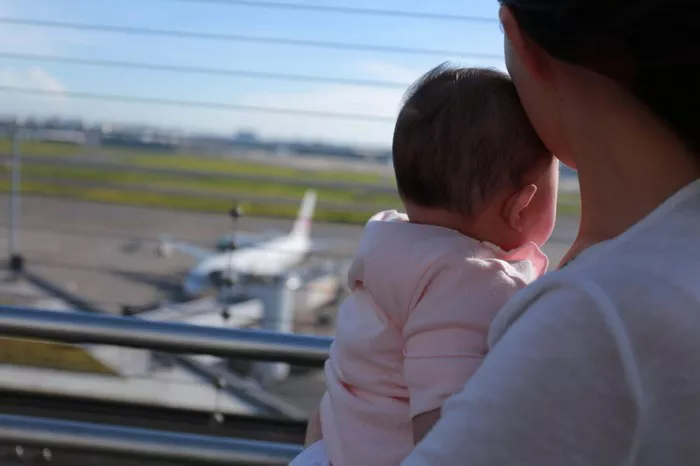As the summer travel season begins, new parents flying with their babies face challenges, particularly when it comes to feeding them. Despite federal guidelines for airport security on handling breast milk, incidents of mistreatment continue to occur.
In 2023, actress and singer Keke Palmer reported that Houston airport security threatened to discard her 16 ounces of breast milk. A year earlier, engineer and TV host Emily Calandrelli was forced to check her partially thawed ice packs, which she used to keep breast milk cool, by Transportation Security Administration (TSA) officers.
Calandrelli described the experience as traumatizing and inconsistent with TSA policies, which allow ice packs for medically necessary purposes. She recounted her first work trip from Los Angeles to Washington, D.C., where she planned to pump after security. TSA officers questioned her extensively about the ice packs, and she was denied her request to speak to a female officer.
Calandrelli shared her experience on social media, leading to a TSA apology. TSA stated that their employees receive regular training on screening diverse traveler populations, including those breastfeeding or traveling with breast milk.
TSA guidelines permit formula, breast milk, toddler drinks, and baby food in quantities exceeding 3.4 ounces. These items, along with ice packs, are considered medically necessary. Passengers should inform TSA officers when carrying these items.
Despite these guidelines, lactating parents often face difficulties, causing physical and emotional stress. Tina Sherman, interim executive director at the U.S. Breastfeeding Committee, explained that regular pumping is essential to maintain milk supply. Interruptions can lead to pain, leaks, and infections like mastitis, while the emotional impact includes anxiety, embarrassment, and stress.
Calandrelli’s ordeal led her to contact her local congresswoman, U.S. Democratic Rep. Katie Porter, who introduced legislation in August 2022 to enhance protections for breastfeeding parents.
The Bottles and Breastfeeding Equipment Screening (BABES) Enhancement Act aims to ensure hygienic handling of breast milk and formula by TSA officers. The bill requires airport officials to minimize contamination risks and consult maternal health organizations to update policies as technology and best practices evolve.
The BABES Act builds on a 2016 law that mandated TSA training on special screening procedures for nursing parents and permitted larger quantities of breast milk and formula in airports and on planes.
Reps. Maria Elvira Salazar (R-FL) and Eric Swalwell (D-CA) co-sponsored the bill in the House, while Sens. Tammy Duckworth (D-IL), Mazie Hirono (D-HI), Steve Daines (R-MT), and Ted Cruz (R-TX) sponsored it in the Senate.
Although the bill did not progress last session, Porter has reintroduced it. The Senate Commerce, Science, and Transportation Committee will soon hear the proposal.
Porter, a mother of three, understands the challenges of traveling with infants. She recalls being told to stop nursing her baby on a plane, which left her feeling angry and worried for her hungry child. She believes the BABES Act will provide TSA agents with clear rules and better training to handle these situations.
Advocates hope that easing travel for lactating parents will reduce the stigma around breastfeeding. According to the U.S. Centers for Disease Control and Prevention, over 80% of babies are breastfed initially, and 58% continue to receive some breast milk by six months old.
However, stigma remains. Earlier this month, a lactation cookie ad featuring a celebrity’s covered breasts and pregnant belly was temporarily removed from a Times Square billboard.
Sherman emphasized the importance of normalizing breastfeeding, stating it is crucial for families to meet their breastfeeding goals.



